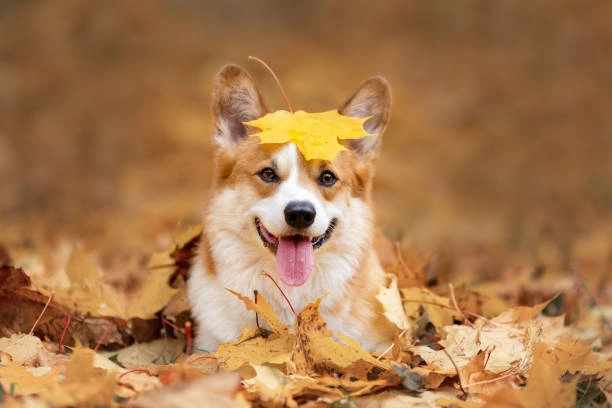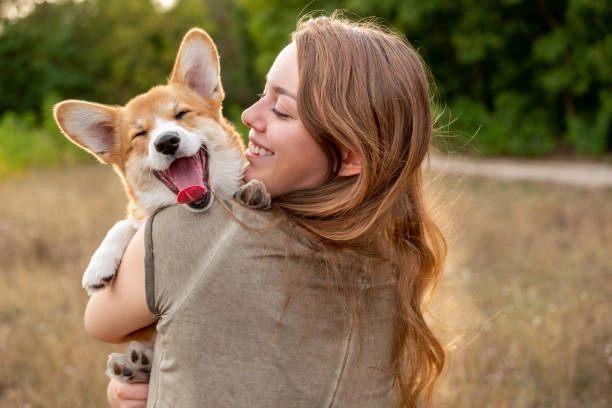Contents
Origin and History
The Corgi, one of the most recognizable and adored dog breeds worldwide, is a small herding dog that hails from Wales, United Kingdom. There are two distinct Corgi breeds: the Pembroke Welsh Corgi and the Cardigan Welsh Corgi. Both have a shared history of being bred for herding livestock, particularly cattle, in the rugged terrains of Wales, but they also have unique lineages. The Pembroke Welsh Corgi, the more popular of the two, is believed to have descended from the Swedish Vallhunds brought to Wales by Viking settlers. The Cardigan Welsh Corgi, on the other hand, has a longer lineage, tracing its roots back over a thousand years, possibly to the Teckel family of dogs, which also includes the Dachshund. Corgis were cherished by Welsh farmers for their intelligence, agility, and low-set bodies that made them ideal for herding and nipping at the heels of cattle.

Physical Appearance
Corgis are easily identified by their distinct appearance: a sturdy, compact body with short legs, a foxy face with erect ears, and an expression that seems perpetually cheerful. The Pembroke Welsh Corgi is slightly smaller and more refined than the Cardigan, with a more rounded ear shape and a docked tail, while the Cardigan Welsh Corgi has a bushy tail and slightly larger, more rounded ears. Both breeds have a double-layered coat, which is weather-resistant and comes in various colors, including red, sable, fawn, black, and tan, often with white markings on the legs, chest, neck, and muzzle. Despite their small stature, Corgis are surprisingly strong and muscular, built to be agile and quick, traits that were essential in their original role as herding dogs.

Personality and Temperament
Corgis are renowned for their vibrant personalities. They are intelligent, alert, and affectionate dogs with a strong sense of loyalty to their families. Known for their friendly and outgoing nature, Corgis are social animals that typically get along well with children, other dogs, and even cats, provided they are properly socialized. However, their herding instincts can sometimes manifest in behaviors like nipping at heels or trying to “herd” people, which is a quirk that many Corgi owners find endearing but may require training to manage. Corgis are also known for their playful spirit and boundless energy. They love to play fetch, learn new tricks, and engage in activities that challenge their minds, such as puzzle toys and obedience training. Though small in size, they possess a bold, almost fearless demeanor, which makes them excellent watchdogs, alerting their owners to any unusual activity with a distinctive, loud bark.
Health and Care Needs
Caring for a Corgi involves understanding their unique physical and mental needs. Due to their elongated backs and short legs, Corgis are prone to back issues, such as intervertebral disc disease, especially if they become overweight or are allowed to jump off high furniture frequently. Regular exercise is vital for keeping them healthy and preventing obesity, which can exacerbate joint and back problems. A daily routine of walks, playtime, and mental stimulation is ideal for this breed. Grooming needs for Corgis are moderate, as they are double-coated dogs that shed heavily, especially during seasonal changes. Regular brushing, at least a few times a week, is necessary to keep their coat healthy and manage shedding. In addition, routine care such as dental hygiene, ear cleaning, and nail trimming are essential to their overall well-being.
Social and Environmental Needs
Corgis thrive in environments where they are part of the family’s daily life. They are known for their desire to be involved in all household activities and are happiest when they have a job to do, whether it’s helping herd the kids or participating in dog sports like agility or obedience competitions. Their intelligence and eagerness to please make them highly trainable, but they also have a stubborn streak that can sometimes challenge novice dog owners. Positive reinforcement methods work best, as Corgis respond well to praise, treats, and interactive play. Despite their adaptability, they do best in homes where they receive plenty of attention and stimulation. They are not a breed that likes to be left alone for long periods, as they can become bored and develop destructive behaviors. A home with a yard is ideal, but Corgis can also adapt well to apartment living as long as they receive sufficient exercise.

Conclusion
In summary, the Corgi is a small dog with a big personality. Their unique combination of intelligence, loyalty, and playful spirit makes them a beloved companion for families, singles, and seniors alike. Whether romping around a yard, herding sheep in a field, or curling up on the couch with their favorite human, Corgis bring joy and energy wherever they go. With proper care, training, and love, they make a wonderful addition to almost any home, proving time and time again that great things often come in small packages.

